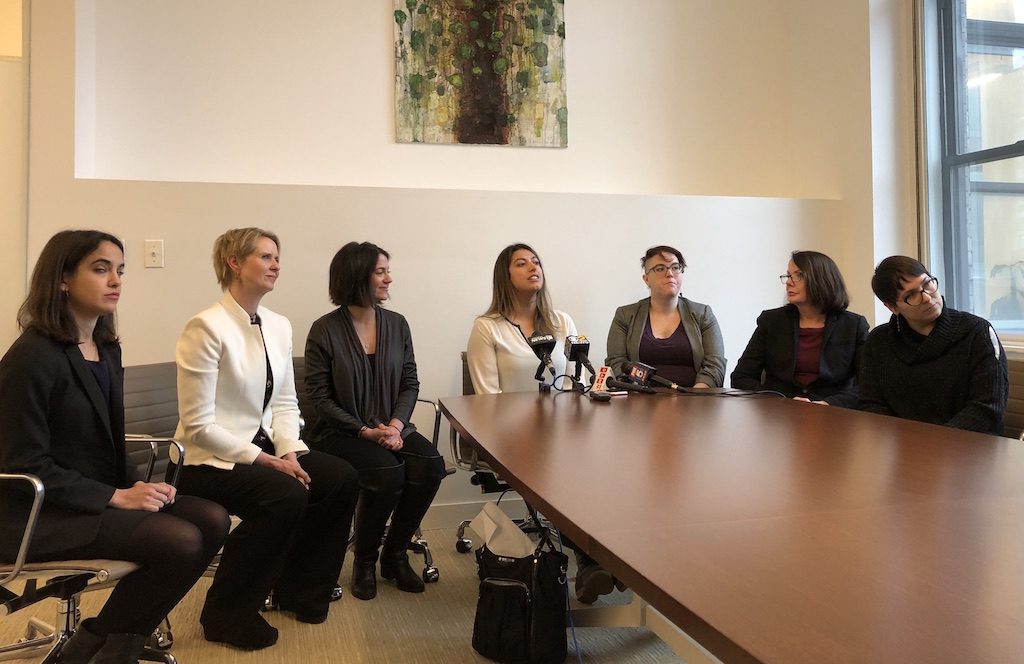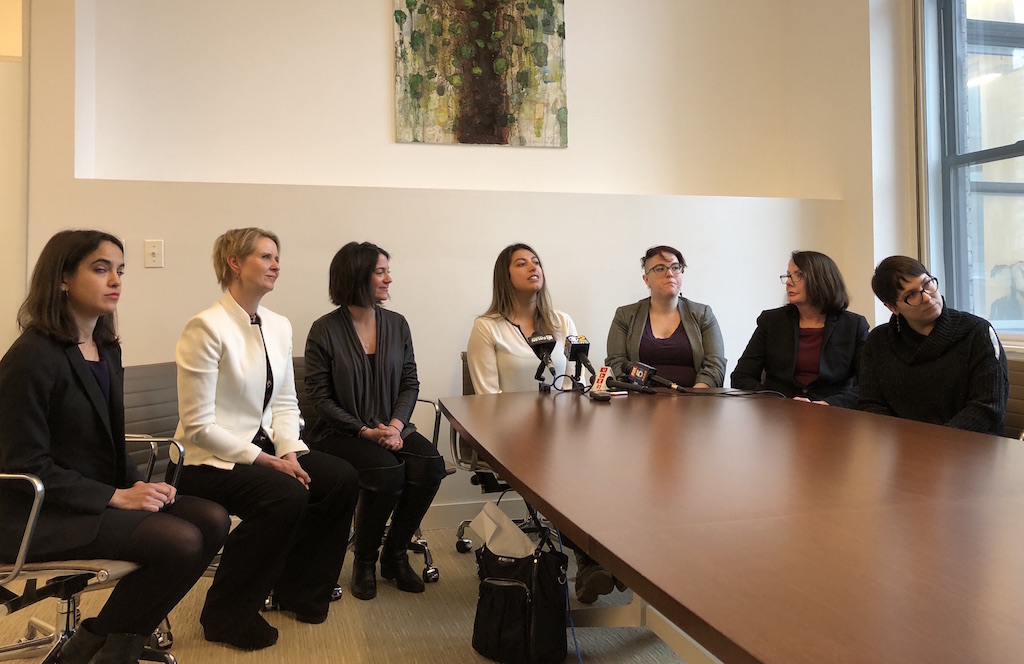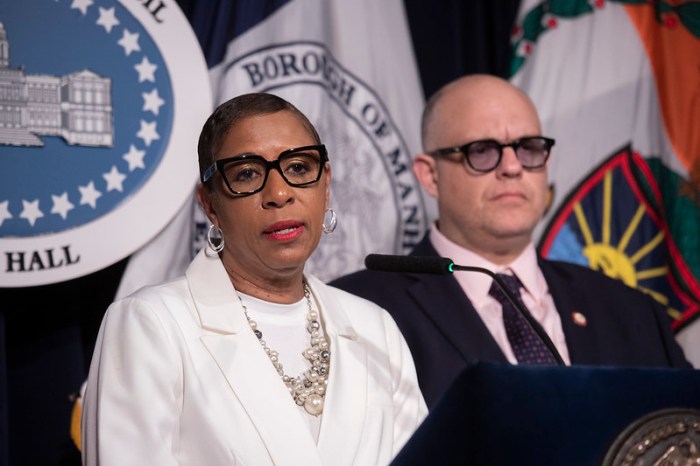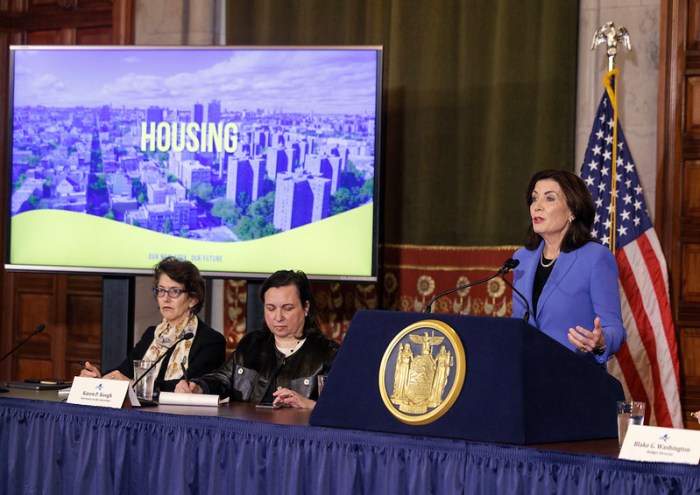
BY ALEJANDRA O’CONNELL-DOMENECH | On Feb.13., the New York State Legislature held its first public hearing on sexual harassment in 27 years.
“Some people in office view this as a problem that they would like to go away,” said Cynthia Nixon, the actor and activist who ran for governor last year, speaking at the law office of Cuti Hector Wang on Feb. 12.
“But this is a problem that we need to not go away but that we need to solve,” she said.
Nixon was joined by five members of the Sexual Harassment Working Group, or SHWG, and Patricia Gunning, a candidate for Rockland County district attorney, at the 305 Broadway law office. All seven members of SHWG say they suffered sexual harassment while formerly working in the state Legislature.
The gathering’s purpose was to push for more hearings across the state on the issue and to emphasize the importance of new survivor-centric sexual-harassment legislation.
Assemblymember Aravella Simotas and state Senator Alessandra Biaggi introduced a series of survivor-centric sexual harassment bills in December.
As a group of women who experienced sexual harassment or abuse while working in New York State government, the fight against sexual harassment is deeply personal for the SHWG members. The inspiration for Simotas’s and Biaggi’s bills came from a policy paper released by the group.
All of the SHWG members present at the press conference, along with D.C.-based member Elizabeth Crothers, planned to testify in Albany. They view themselves, unfortunately, as experts on the topic.
“Some of the proposed legislation is very technical, so there might be unintended loopholes,” said SHWG member Erica Vladimir, who accused former state Senator Jeff Klein of unwanted kissing in 2015.
“You won’t really know about those unless you are on the ground and you have actually gone through these experiences,” Vladimir said. “By telling our stories, that can really provide a strong foundation for the strongest laws in the nation.”
Simotas and Biaggi introduced a total of six bills that aligned with SHWG’s mission.
The first of these would require that anyone entering a confidentiality agreement first be given a written waiver explaining the full consequences of the agreement and the rights they would be surrendering.
The second bill would require all employers to tell their employees that just because they have signed an employment contract with nondisclosure or nondisparagement provisions, they can still speak to law enforcement, the Equal Employment Opportunity Commission, the state Division of Human Rights or a local Commission on Human Rights.
The third bill would extend the time to file a sexual harassment or discrimination complaint with the New York State Human Rights Division from one year to three years.
The fourth measure mandates that all state employees complete annual bystander-intervention training.
The fifth bill requires all that all settlement agreements related to discrimination, sexual harassment or sexual assault be disclosed to the New York State Attorney General’s Office.
The sixth bill would mandate that a victim of sexual harassment is entitled to extra compensation if she or he agrees to settling with a confidentiality agreement.
Also among the issues SHWG is fighting for is to establish a state law in line with New York City’s “less well” standard, which allows employees to bring a claim if they feel that they are being treated “less well” based on their gender or perceived gender.
Another goal is eliminating the Faragher-Ellerth defense, under which, if an employee does not follow her or his employer’s established procedures for filing a complaint, a harasser can use that fact against the employee to avoid liability.
“We are going to be watching and see who really shows up and who really listens,” Nixon said of the hearing.


















